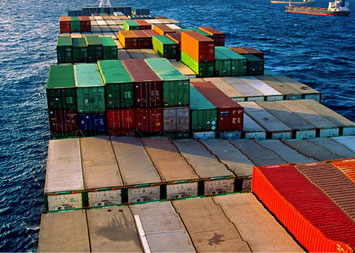ICC Secretary General John W.H. Denton AO has issued a vital message to climate ministers ahead of COP29 taking place in Baku from 11 to 22 November 2024, urging them to ensure that COP29 delivers two core outcomes.
Dear Ministers,
I am writing in advance of COP29 to seek your active support in ensuring the conference delivers robust and tangible outcomes capable of speeding climate mitigation and adaptation efforts across the real economy.
Last year, the global business community unequivocally welcomed the successful adoption of the “UAE Consensus” as providing a clear path to keep global temperature increase to 1.5°C. COP29 must now deliver an outcome of equivalent ambition to enable the full implementation of that framework across all countries – and at the lowest possible economic cost.
In this context, we urge you to ensure that COP29 delivers two core outcomes. Specifically:
1. A truly ambitious, actionable, and comprehensive New Collective Quantified Goal on Climate Finance (“NCQG”).
This should, of course, encompass a strong and central public finance commitment in keeping with the scale of climate finance needs of developing and climate-vulnerable economies. But – given that almost half of climate finance today is provided by private actors – we also urge you to seize the opportunity to incorporate in the NCQG an “outer layer” setting out a global investment target and an actionable roadmap to align the global financial system with the goals of the Paris Agreement.
To be meaningful, this should include specific commitments to tackle prevailing barriers to the deployment of climate finance from private sources in developing economies – from the calibration of global financial stability rules to the impact of sovereign debt levels on climate-related investments. While we recognise that the solution to many of these challenges will need to be pursued outside the mandate of the UNFCCC, we believe a strong political commitment in the NCQG itself could have an important catalytic effect in advancing much-needed action by other relevant institutions.
Barriers to the deployment of private climate finance are real, well evidenced and cannot be wished away by high-level targets. Setting a new action agenda to forge an enabling environment for private finance would – in our view – represent the biggest step forward in combatting climate change since the gavelling of the Paris Agreement.
2. Full operationalisation of Article 6 of the Paris Agreement to unleash the potential of international carbon markets to accelerate the pace and scale of emissions reductions.
In this context, we have been encouraged by the progress of negotiations in recent months in addressing outstanding issues on both Article 6.2 and 6.4 – but remain alert to continued differences amongst parties on critical provisions related to authorisations, registries and the sequencing of reporting and reviews.
After almost a decade of negotiations, further delay in concluding outstanding guidance on Article 6.2 implementation and the operationalisation of a global trading mechanism under Article 6.4 would represent a serious blow to business confidence in the future of international carbon markets – placing a further (and entirely avoidable) drag on implementation efforts in the real economy.
Given the scale of finance and efficiency savings that could be generated by robust cross-border carbon markets, we count on your leadership to resolve all outstanding issues with the necessary pragmatism in Baku – staying true to commitments made at prior COPs to avoid micro-management approaches and further politicisation of the issues at stake.
Simply put: it is time to get a comprehensive and workable agreement on Article 6 over the line – laying the foundations for high-integrity cross-border carbon markets.
Taken together, we believe these two core deliverables would provide the ideal foundation for governments to submit significantly upgraded Nationally Determined Contributions by 2025 – establishing clear and credible transition plans and coordinated policies at all levels, capable of enabling a virtuous cycle of green business investment in every country and real international cooperation.
Companies across the International Chamber of Commerce’s global network are increasingly feeling the impacts of climate-related extreme weather events – from the destruction of infrastructure to the erosion of human capital. That is why we say – with genuine perspective – that decisions on finance and carbon markets cannot be delayed or deferred beyond this year.
The time for action is now. And, in that spirit, please do not hesitate to let me know how we can best support you in ensuring COP29 delivers the ambitious and actionable outcomes the world – and, not least, the private sector – so desperately needs.
Read more about ICC climate action policy











